House of Necrosis: Warkus talks about making Mystery Dungeons dreadful
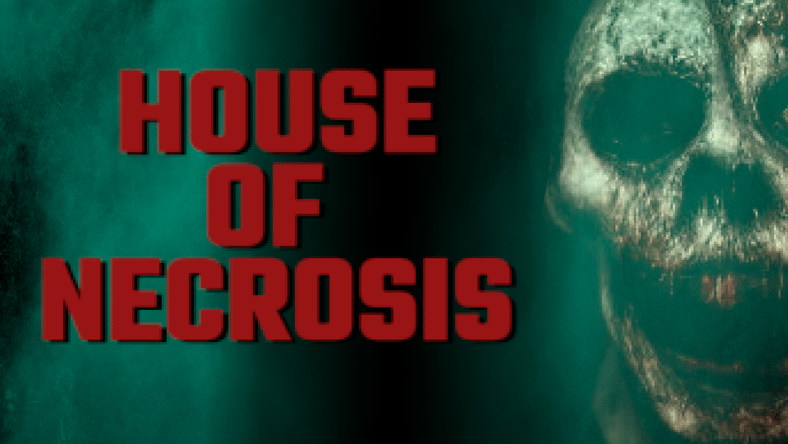
Survival Horror is a staple in modern gaming, and for good reason, but as fantastic as it is no one can really argue that it is formulaic, and while some games like Parasite Eve or the upcoming Rogue Mansion aim to shake things up by adding RPG elements or ensuring that no two playthroughs are the same, they are still very much rooted in the core mechanics of the genre. This has left a void that some are aiming to fill, including Warkus, who aims to bring his love of the Survival Horror genre to the Mystery Dungeon crowd with his upcoming title House of Necrosis.
Thankfully, in the time between scheduling the interview with Warkus and actually having the conversation, this title was made available on the Haunted PS1 Spectral Mall Demo Disc, so I was able to go into the interview with a better understanding of the game and its mechanics. What I did not know, however, was that the mechanics and controls that felt so alien to me, and took time to adjust to, were in fact the standard for the genre known as Mystery Dungeon, which encapsulates many games, but, much like Survival Horror, has its own unique mechanics that keep people returning to the genre.
Back when I first found this game online, I was initially interested because I had assumed that its lineage lay in traditional dungeon crawler RPGs like Wizardry or Ultima Underworld. But thankfully he accepted my request for an interview, and he was able to tell me more about his title, as well as shed some light on the entire genre of Mystery Dungeon games.
I thanked Warkus again for taking time out of his schedule to speak with me. With the demo for House of Necrosis going live a few days before we spoke, it seemed like we had scheduled our interview perfectly. I told him how much I had enjoyed my time spent with House of Necrosis, and began by asking him how long he had been developing games and how his game dev journey had led him to this point?
Warkus: Oh, that’s been a really, really long time. So I first started making games like, 2011 or something like that. So like, that was when I first started to get into game jams and stuff like that. And, because of work and other stuff, I pretty much stopped making games for a bunch of years. And I had just gotten back into it when the pandemic started. So in 2020… I mean, back in 2010-2011, the games I made were more just very, very crude prototypes, kind of just dabbling into this kind of game dev stuff. And it was actually just in 2020, when I started to make games that other people actually played… That’s also like, my whole itch.io presence and stuff like that. That didn’t exist before 2020.
I was impressed that he had made such an impact in such a short amount of time. I followed up by asking if he was a solo dev in the sense that he was responsible for the art and music as well?
Warkus: So like, if you look on my itch.io page, I have this small category where it says collaborations. And these are games where I worked with other people, except for Shadow over Normouth, I had a buddy of mine, he made the music for that game, and sound effects, but everything else was entirely made by me. So I’m more of the solo developer kind of person. [in House of Necrosis] Everything you can see here or read is all done by me.
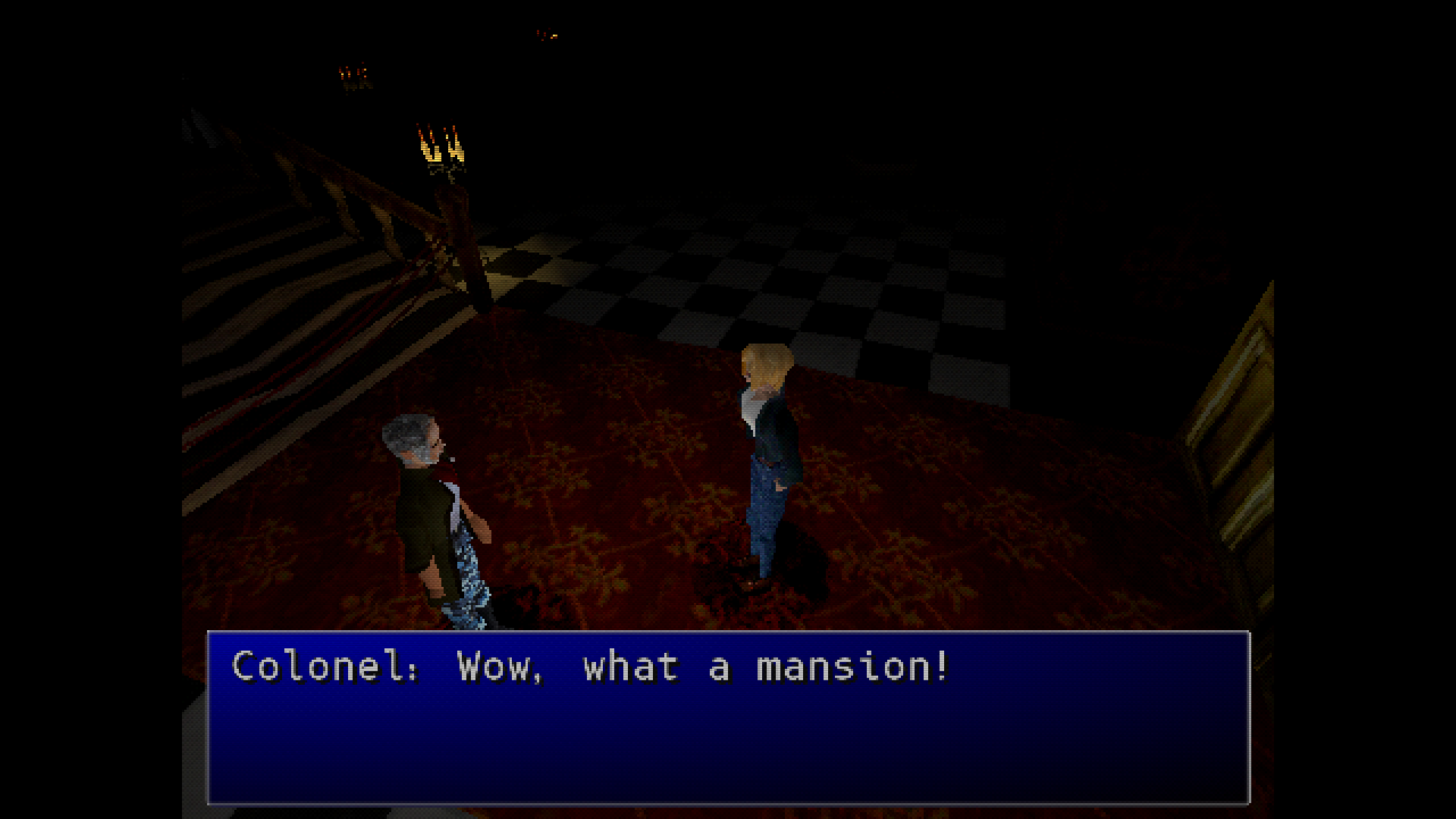
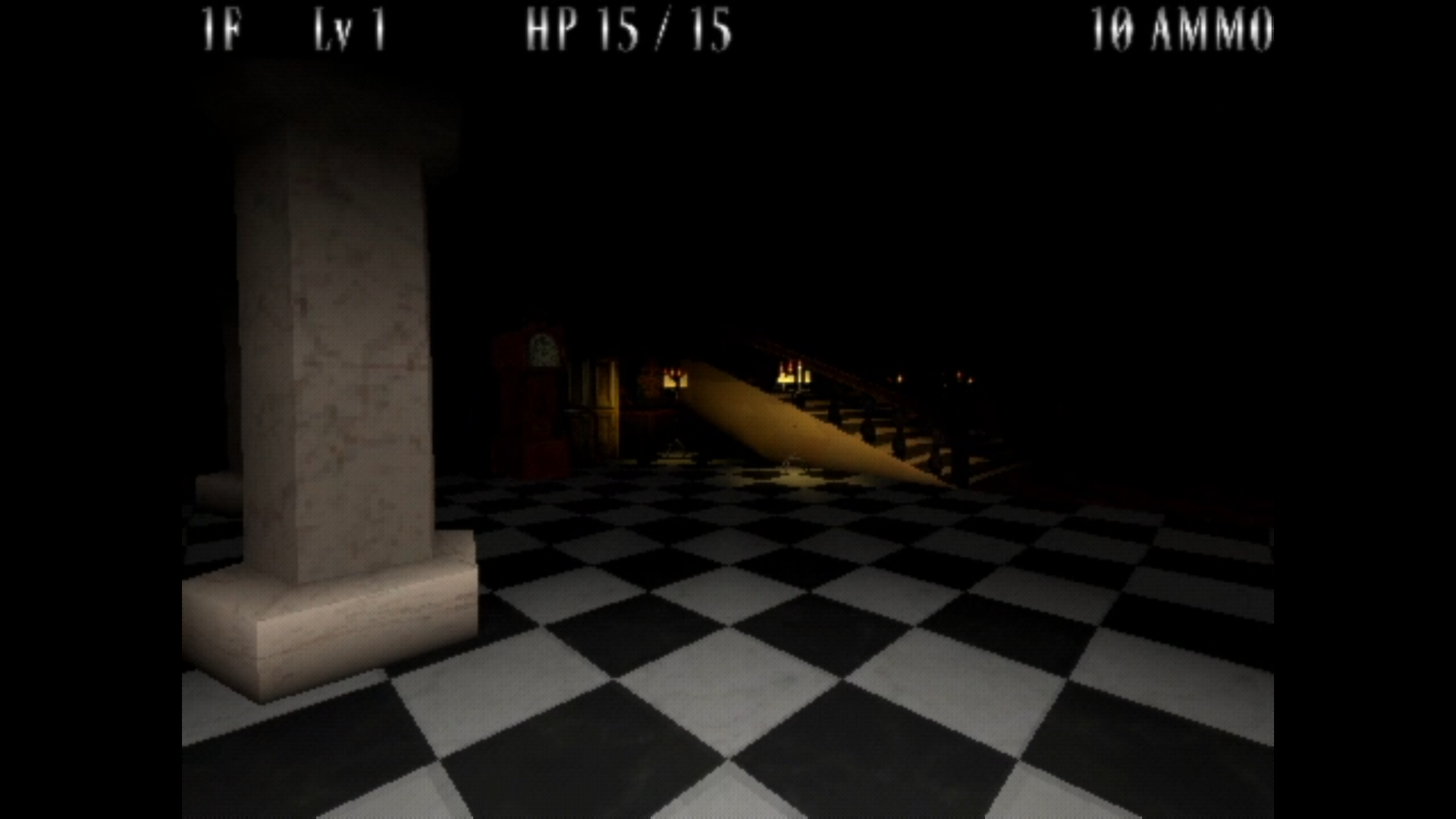
Talking about House of Necrosis, I wanted to learn more about the mechanical inspirations for the title, while its aesthetics were very familiar to me, I had little experience with games of this caliber. So I asked if the title drew a lot of inspiration from classic dungeon-crawling RPGs, as far as the gameplay was concerned?
Warkus: So the mechanics are actually not that PC role-playing games inspired. The secondary genre, so to say, is full-on Mystery Dungeon, and that’s like, a console spin on the Rogue-Like genre that existed back when the first game came out, was something like 1993 or 1994, or something like that, there was a company called Chunsoft. Like, back in the day, there was no Rogue-Like genre, there was Rogue and there was maybe like, NetHack and stuff like that. And they wanted to adapt it to the Famicom or Super Famicom back then. And what they did is they use the Dragon Quest’s or Dragon Warrior, as it was known in the US, those kinds of characters, and basically use those assets for a Rogue kind of game or a NetHack kind of game, and that was when, or how Mystery Dungeon was actually born. And I mean, I’m pretty sure anyone who has ever played any of the Mystery Dungeon series would immediately recognize all of the inspiration that’s in that game.
I followed up by recalling that I had seen a few games in this series on the 3DS before, but I was unaware of the genre as a whole.
Warkus: Yeah. Like, Etrian Mystery Dungeon, and what’s probably the most famous one is probably Pokemon Mystery Dungeon. And of course, the Shiren the wanderer series.
One thing that caught me off guard was the controls for the title. It most certainly took a moment for me to adjust to the rigid systems that fuel House of Necrosis, but most certainly, once I had taken the time to familiarize myself with the controller layout, it did begin to come naturally to me. But with that being said, I was curious as to how Warkus felt about possibly deterring players with the control scheme, so I asked if there was any chance that he would make an alternate control scheme for people who have a hard time navigating the mansion?
Warkus: Yeah, so my thing is, this is a niche game for a niche audience kind of thing. And everyone who has ever played any of the Mystery Dungeon series will feel right at home, because the controls are just like, it’s all the same. So like, all the muscle memory you build from those other games will transfer right over. And that’s where I also come from. And I’m also like, I think that I’m not really the kind of developer or person who prefers to like, modernize stuff where it isn’t needed. I mean, like you said, it’s just like, you’re playing for a short amount of time and you get used to it. So there’s no point to like, modernize it or anything.
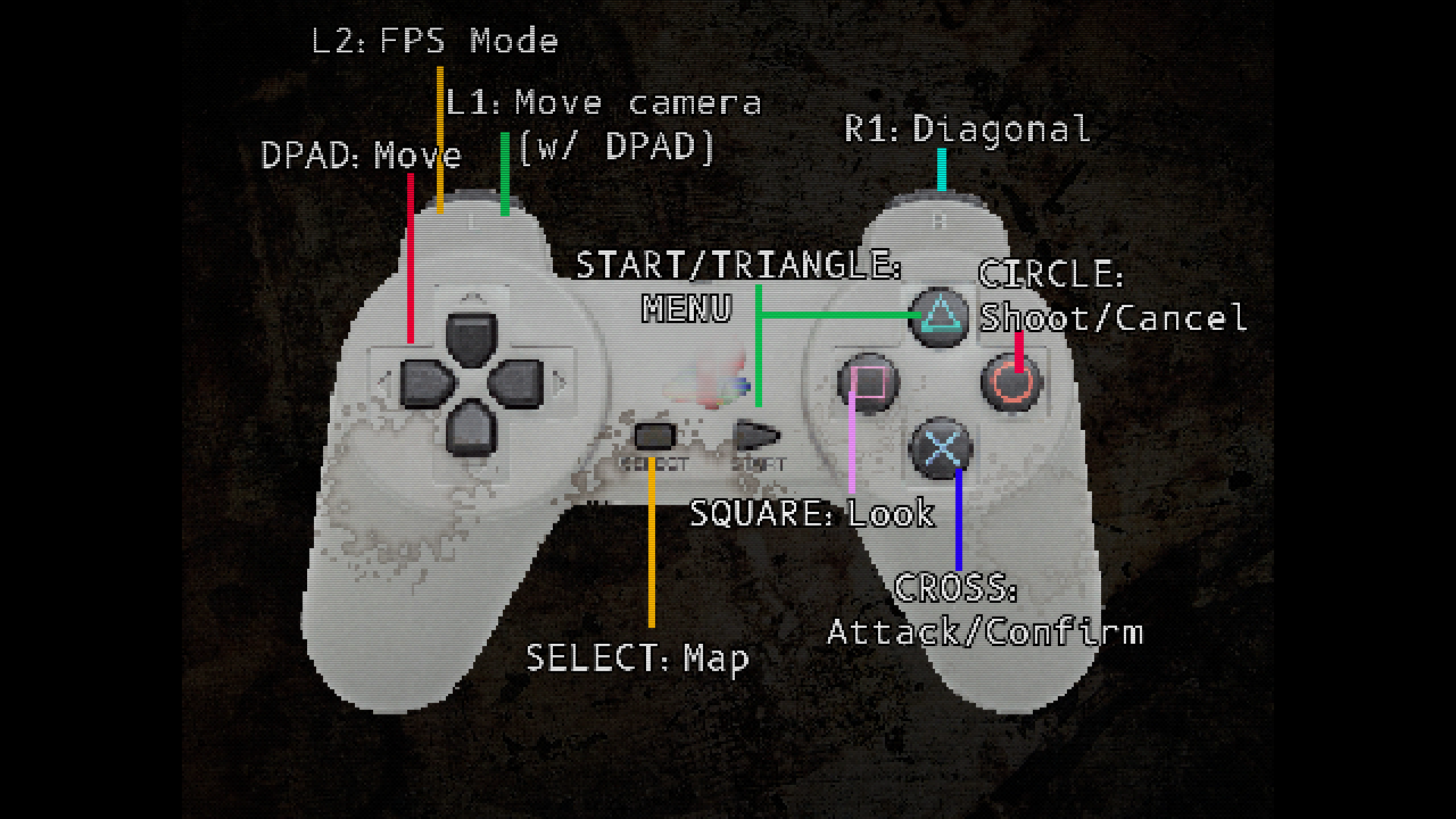
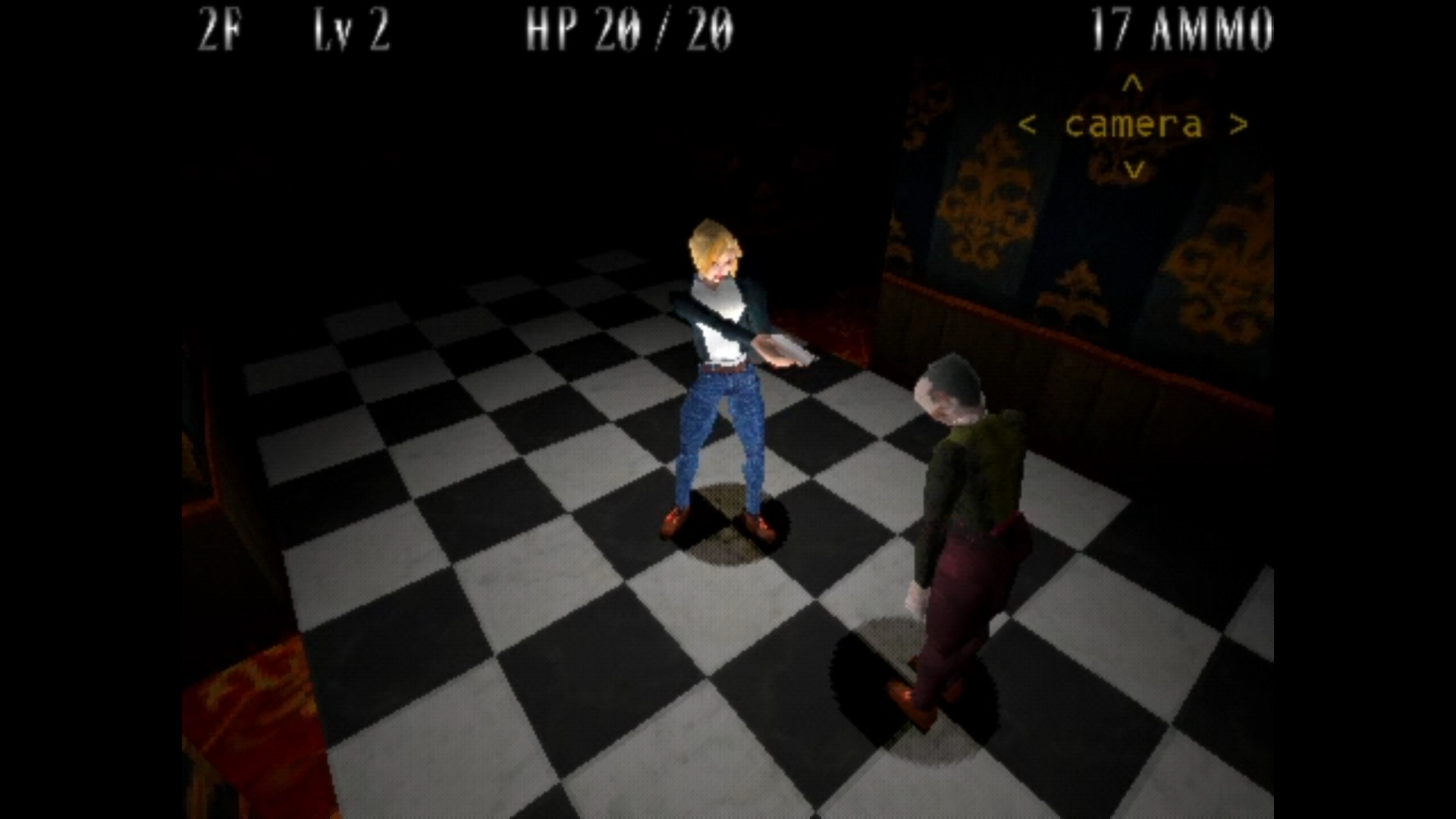
I commented that this title was not a Mystery Dungeon game for Survival Horror fans, but a taste of Survival Horror for Mystery Dungeon fans.
Warkus: Yeah, so like, my whole idea really was, like, the creation story of House of Necrosis was like, I was playing the SNES port, like, the Torneko game that was on the SNES, and I really, really enjoyed that one. And I was skimming through the list of releases in the Mystery Dungeon series. And there’s only one game that is more like, a bit more serious, maybe a bit more mature. And that’s the Tower of Druaga title. That’s only one, and it’s also like, not the best entry into the genre or anything. It’s kind of meh. So, what are your other options? You have, like Torneko, that is that anime kind of character, then you have your Shiren games that are really, really, really like, Japanese style. And then you have Pokemon. So for anyone that wants a more like, mature kind of game or like with a somewhat realistic character. There’s nothing that you would see where you said, “Yeah, okay, that’s something I would enjoy”.
And yeah, of course, since I’m mostly making horror games, I immediately saw the connections between those Rogue-Likes, with its resource management, tense moments, you go around the corner, and then there’s the monster that’s stalking you kind of stuff. I immediately saw the parallels right there. And, yeah, just thought, that could be something that could be turned into some kind of horror game. And after that, I replayed the very first Resident Evil game on the PlayStation One. And it was like just a click in my head, like really just, it’s almost the same. Like you could really just take Resident Evil, make it turn base, turn it into this Mystery Dungeon like formula, and I’m pretty sure it would work. So that was like, my thing. And then in March, there was a game jam, it was called The Seven Day RL challenge. I’ve been wanting to participate in that particular challenge for a bunch of years, but always missed it. This time around I finally got time and saw it in advance and everything. And like, with ideas in my head, I went to it. And that’s when I made House of Necrosis.
Another thing, I’m not sure if it’s interesting for the article or anything, but I’m like, I’m working full time and everything and I’m making games just like, my hobby… so I’m just making what I find fun… I’m really making this game just for me, to be honest (laughs) I’m just making the game because I want it to exist, that’s the whole reason.
Warkus
I followed up by asking if he had always wanted to make a full version of House of Necrosis, or if this was something that came about once he saw the positive reception for the game jam entry?
Warkus: So I would say it was both. The response was really, really, really phenomenal. More than I would ever have thought. Like, I was featured, it was the first printed article in a magazine, for me. I think it was the US version of PC Gamer where somebody just sent me a screenshot and said “yeah, that’s your game”. Like, that’s really cool. That was definitely a motivation, like, “yeah, I definitely have to expand on this game”. And I also really enjoyed working on it. So it was a lot of fun, and of course, like in seven days, you can’t put all your ideas into this. So I really had a lot of more ideas. How to expand on it and stuff like that. So yeah, it pretty much came natural to just think, yeah, I want to make more, work more on this game.

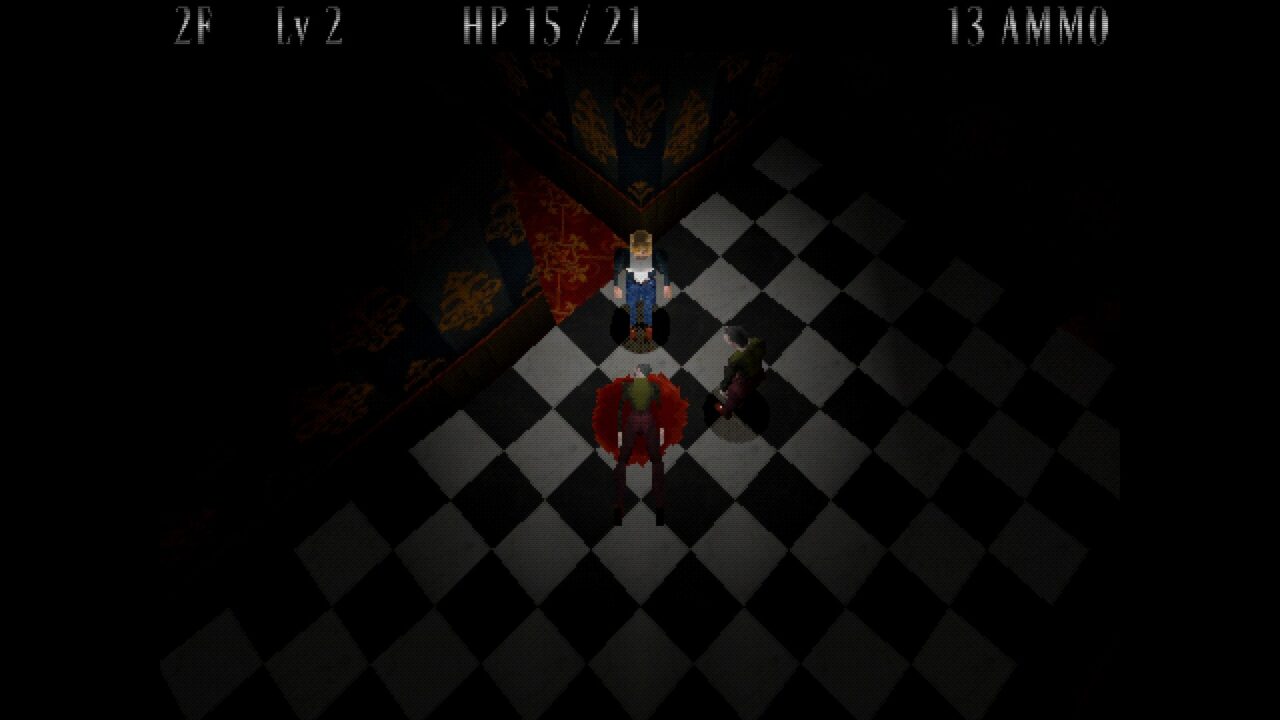
On the topic of the horror element of this game, when you are wandering the shifting mansion floors you are constantly enveloped in a darkness that limits your visibility greatly, I asked if this level of claustrophobia was something he added to make the game more atmospheric, or if it was something that is found in many Mystery Dungeon games?
Warkus: So that was something I noticed when I played the original Mystery Dungeon games. That like, there are so many moments that are basically just Survival Horror without being a Survival Horror game. So yeah, that’s actually not something I really implemented into the game, but that just came natural. And also all the ambient noises that the enemies made. That was something I added. So that’s not a part of a traditional Mystery Dungeon game. The enemies usually don’t make any noise. But I was thinking about games that had this kind of like, foreshadowing kind of stuff. Like, an enemy is around the corner kind of thing. And funnily enough, the best reference for that kind of stuff is actually Minecraft. Because when you’re going into a cave for the first time, and you don’t know what’s in there, like, even if you’re just playing it for the first time. You’re so scared just by the noises. So like you you hear a skeleton in the distance or something like that, that really tricked me. And I just had to include that into the game as well.
One thing that is important to Survival Horror is typically the story, and while House of Necrosis does give the player a reason to be exploring the mansion, I know it can be hard to make complex narratives in a Rogue-Like game, so I asked Warkus if there was going to be much story in the game aside form what was needed to motivate the player?
Warkus: So like, all I can say right now is that this overall story is set up in a way that it will probably surprise everyone who’s playing it, because I like to toy with the idea that it’s just like the Resident Evil story in a Mystery Dungeon kind of setting. But in the end, it will probably surprise everyone because I’m obviously not just going to copy the Resident Evil story. And there’s also a meaning behind the title. So there’s actually a meaning behind why it’s called the House of necrosis as well.
I had completed the demo, which ends after the seventh floor, but I wanted to know how large the final version of the game was going to be, so I asked if there would be multiple scenarios or an endless mode to play through when the game released?
Warkus: Yeah, so the whole idea behind this game is to like, go for the structure of the PS1 Torneko game. And how that works is like, you got multiple dungeons. So it’s not like that easy kind of setup where it’s just like floor one to floor 100 and at floor 100 there’s the boss, and then you have to go up again, and then you win. Rather it’s going to be like I said, in the PS1 Torneko title, where there’s multiple kinds of dungeons, and like, beating one dungeon is unlocking the doors in the mansion. So you can go into the doors that are locked right now on the demo. And it’s actually going to be a lot like Mario 64. So like, you get this building with a lot of doors, and you have to unlock the doors with some kind of currency or achievement in the game or something like that. And behind every door is a unique kind of dungeon with unique enemies. And you have to make your way through all of the mansion to find your missing team members.
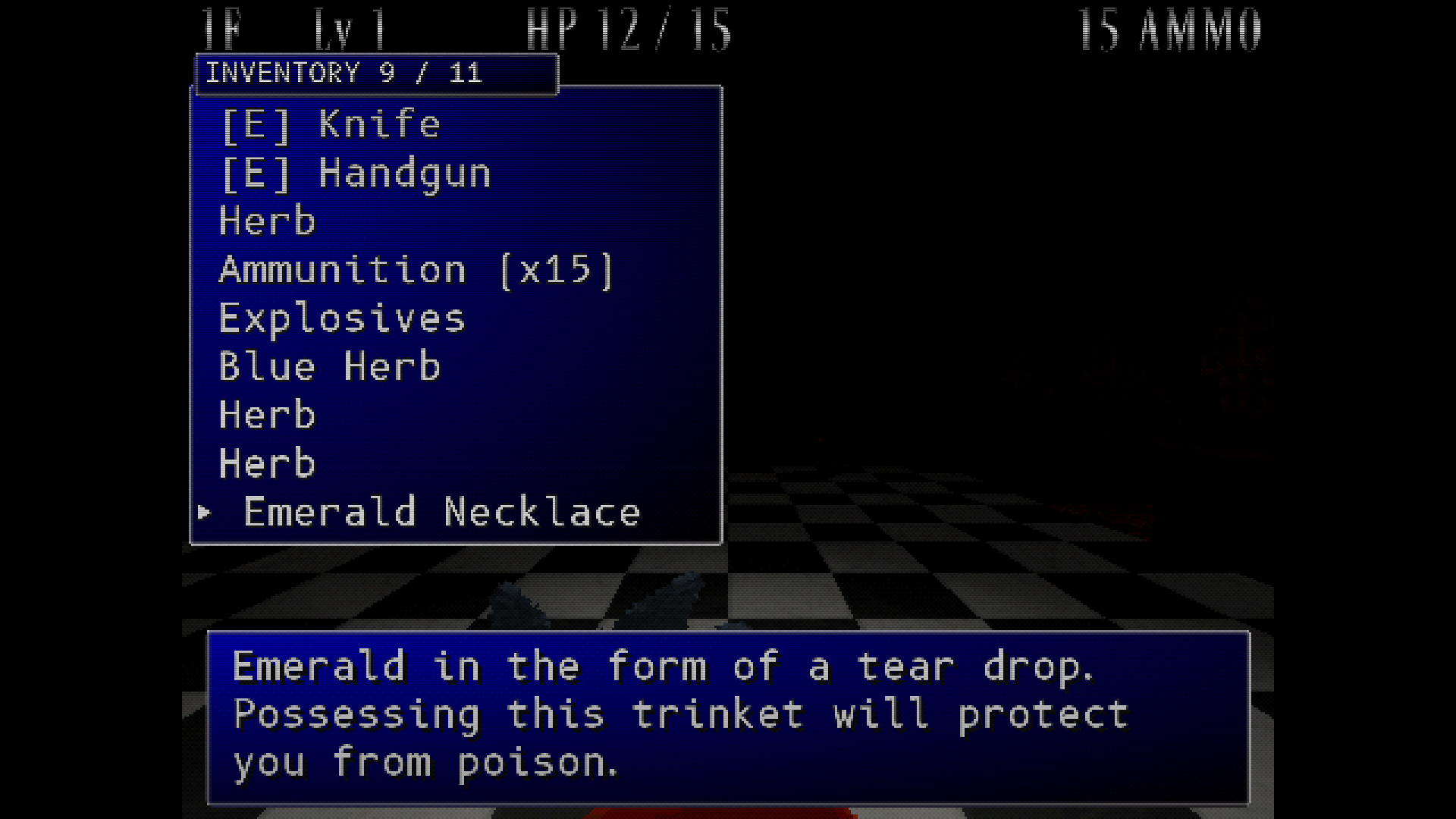
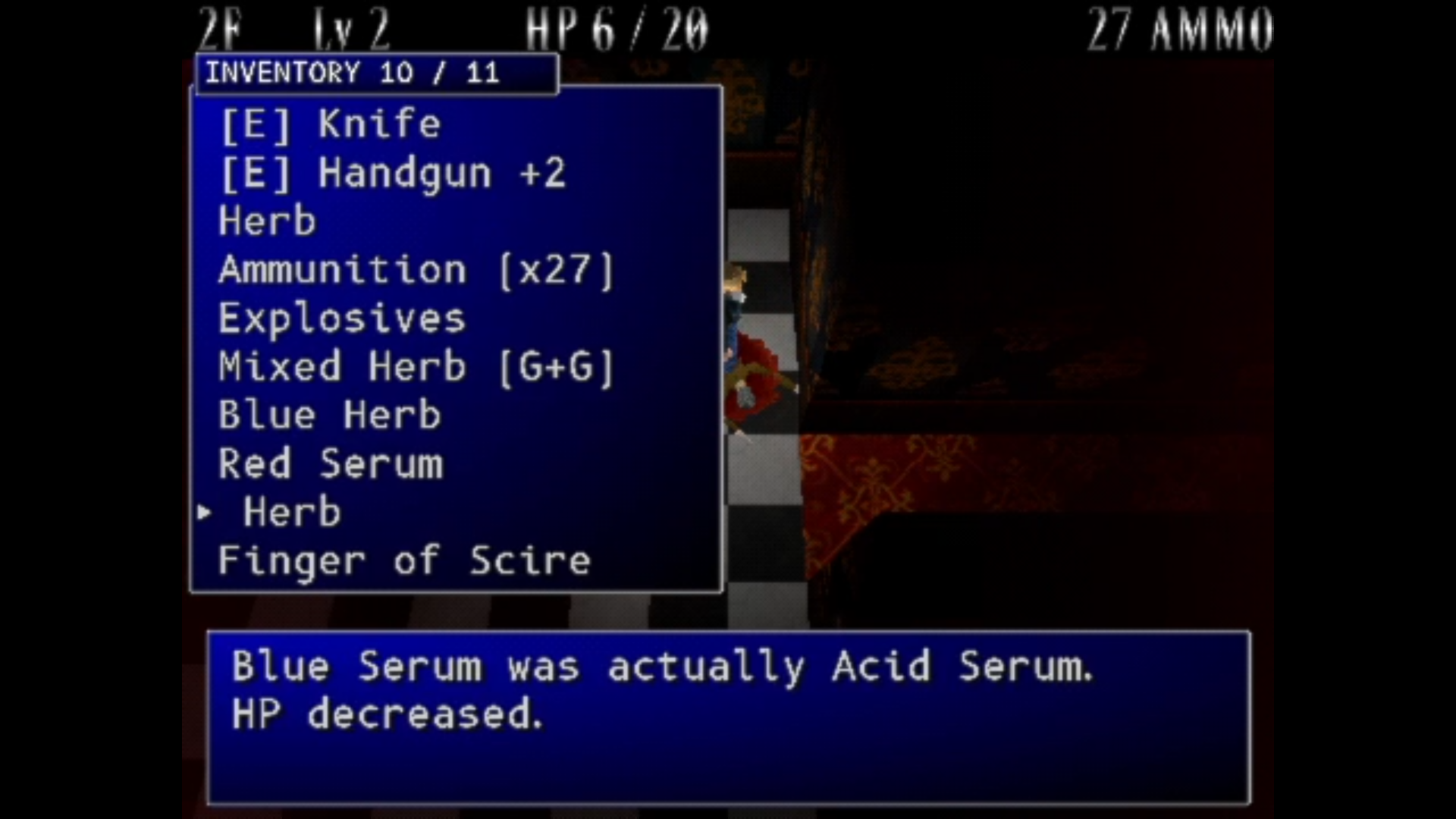
With the game seeming very well put together and very polished, I had gotten quite a lot of content from the demo. Curious as to how far away the final project was, I asked Warkus if he felt that he was in the last stretch of production?
Warkus: So like, that’s the beauty of these games. The algorithm is all set up, so all I gotta do is like, make a bunch of textures and stuff, and a few more enemies and something like that. So like, creating content is really fast at this point. I can churn out a bunch of content in like, no time, basically. But on the other hand, and that’s where a lot of other games like this fail, is they create more content, or like more quantity than quality kind of stuff. And, yeah, I’m more interested in the more like, quality kind of things. So the challenge for me personally, is really like, to make every dungeon, so to say, feel kinda unique. And also ramp up the difficulty to make it interesting so that people are like, when they come back from dungeon one they’re excited to go into the next and stuff like that. Yeah, and that kind of stuff, obviously, will take some more time. And, yeah, I got a bunch of other projects and stuff up like this year with the demo disc releasing. So my idea was to, like, get feedback from the players who were playing the current version. And like, incorporate that into the next version, or something like that. And there will probably be another demo, I don’t know, at the start of next year, but I’m trying to keep [the final build] short. Because as much as I like role playing games, the worst thing about them for me personally is like when they go on for 200-300 hours, because as an adult, as we all are, who’s got time for that, right?
One last question I had for him regarding House of Necrosis, as the dev of the game and also a fan of the genre, I asked whether or not he preferred to play in first or third person when navigating the mansion?
Warkus: That’s hard to say. So, I feel like first person is definitely more moody and atmospheric and I enjoy it. Like, if I’m wandering through the floors, it’s definitely first person because I enjoy just taking up all the vibes. But when it comes to positioning and like, if you’re entering a room where there’s like five enemies or something like that, it becomes kind of hard to memorize where everything is. And that’s where I usually switch to the top down perspective.
To end our interview I asked Warkus if he had any plans for projects after House of Necrosis launched, and if he would ever consider making another horror Mystery Dungeon game, perhaps one more inspired by another survival horror series?
Warkus: Oh, I mean, it’s probably not something that’s really like, going to release in the next year or something. But a friend of mine actually worked on a game that was on the last Haunted PS1 Demo Disc. It’s called Fiends Isle, which is like this Kings Field kind of Rogue-Like game. And yeah, that’s something that will be in the same vein. Or like, almost like the same genre kind of like, and we’re talking about it a lot. And yeah, that will be a cool project to pursue in the future for sure. When it comes to like, like, Mystery Dungeon kind of games. So I mean, at some point, I would really like to make a game that was more set in medieval times, but with this kind of horror element to it, so something more like dark fantasy kind of stuff. That would be cool, for sure. But I can also imagine, like, if I’m going to work on this game for another year, or something, I would probably get all my ideas into that game. And yeah, that will probably be it then. So who knows? We’ll see, time will tell.
With that our interview had ended, I thanked Warkus again for his time and for educating me on the ins-and-outs of the Mystery Dungeon genre, which I am surely a fan of after multiple playthroughs of the House of Necrosis demo.
You can add House of Necrosis to your Steam Wishlist right now, and If you want to get your hands on the demo, you can play it in the Haunted PS1 Spectral Mall demo disc. To keep up to date on the development of House of Necrosis and see what else Warkus has going on, visit him on Twitter, and to see more projects he has worked on, visit his Itch.io page.
And as always, if you are fiending for more ghoulish gossip on the latest and greatest in horror gaming, then head back to DreadXP.com and read more of our frightful features.
Categorized:Interviews

